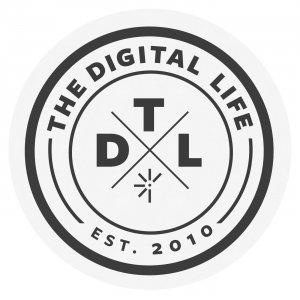The Digital Life

The Top Stories of 2015
Jon: Welcome to Episode 134 of The Digital Life, a show about our adventures in the world of design and technology. I'm your host, Jon Follett and with me is founder and co-host, Dirk Knemeyer.
Dirk: Hey, Jon. How's it going?
Jon: Pretty good. We're wrapping up 2015, which is a surprise to me, because the year went by so quickly, but that seems to be the way things go now that I have kids. I blink and another year goes by. To get going with our retrospective of 2015, we're going to do a couple of shows over the next few weeks, starting with this one, where we talk about some of the top science and technology stories of 2015 and reflect back on the year that went by in a blink.
Dirk: Oh, it sounds great. It has gone by quickly, too. What stories have you picked up for us today, Jon?
Jon: If you remember, about 12 months ago, not quite, Sony was hacked by what was apparently a group that might have been associated with North Korea. It was supposedly in retribution for a movie called "The Interview," in which North Korea's leader was supposed to be assassinated as a part of this comedy, which of course, is palpably offensive for them, so you could see why they might take offense if they did or perhaps did not do this hack. It was very embarrassing for Sony and spilled a lot of their dirty laundry out for people to see.
As a result of that, the White House actually approved some sanctions against North Korea in a limited way, targeting some individuals and some groups out of North Korea. I think this was an important story for a couple of reasons. One of those was that the digital world is now a place where politics and, quote, "cyber warfare" and the meaning of those things online are in a way that we haven't quite seen before and is now becoming more and more important as data becomes part of politics and warfare. I thought it was notable for that reason.
Dirk, what was your takeaway from the Sony hack, if anything?
Dirk: Yeah, it was a huge example of the dangers that hacking can have on a corporation, because it was really detrimental to Sony. Sony's been attacked in a lot of ways online over the last few years and this was the most public and embarrassing: salacious gossip about big celebrities was coming out as a result of this, because of the private slanders in email that Sony executives partook.
For me, this has a little bit of a personal connection, because of course, I went to North Korea this year. When I was there, my tour, I had both a tour guide and a political operative of the state, who were feeding me information as we were going around. The political operative, very interesting guy, but he made a point of saying, "This Sony hack is something that the United States says that North Korea did." He said, "Look around, North Korea's a little country, so little, so humble. Could we possibly have done this hack that the United States says we did?"
He said it and the smile on his face and the twinkle in his eye communicated, "We hacked the shit out of you, but we're going to deny it. It sure doesn't look like we should be able to do that, does it?" When I think of the Sony hack, I think of that conversation.
Jon: That's a really funny story. Along the same lines, another really important story from towards the end of the year was the group "Anonymous" declaring war on ISIS, online war, and just once again showing how the battle lines have moved to the world of the digital and how this is evolving very rapidly. It's funny, all of this seems to be like something out of a William Gibson novel, frankly, which number one, makes Mr. Gibson look exceptionally pressing and, secondly, we can hope that some of the other things in his novels don't come true.
The fact remains that the online world is exceedingly getting more conflicted and dangerous and fraught as it becomes a 21st century battleground. We discussed that Anonymous v ISIS at length in one of our podcasts.






 Visit Podcast Website
Visit Podcast Website RSS Podcast Feed
RSS Podcast Feed Subscribe
Subscribe
 Add to MyCast
Add to MyCast